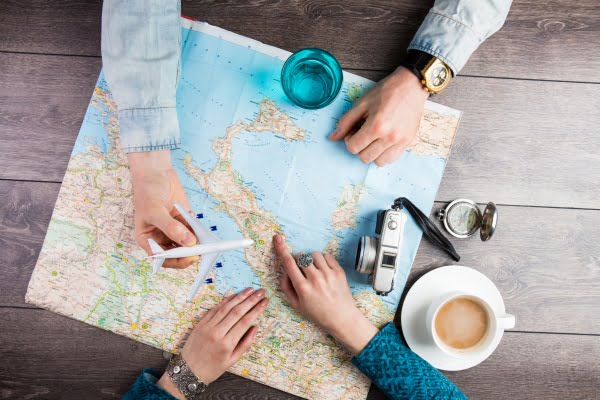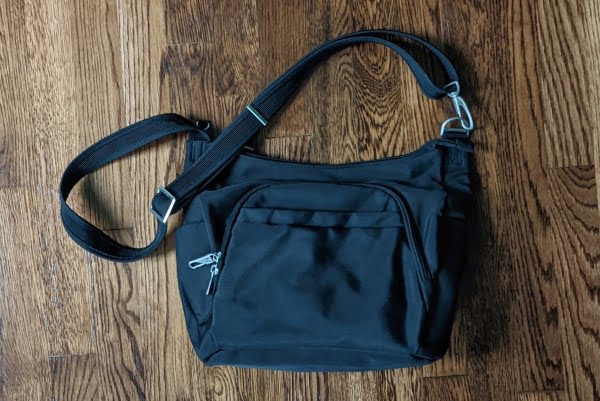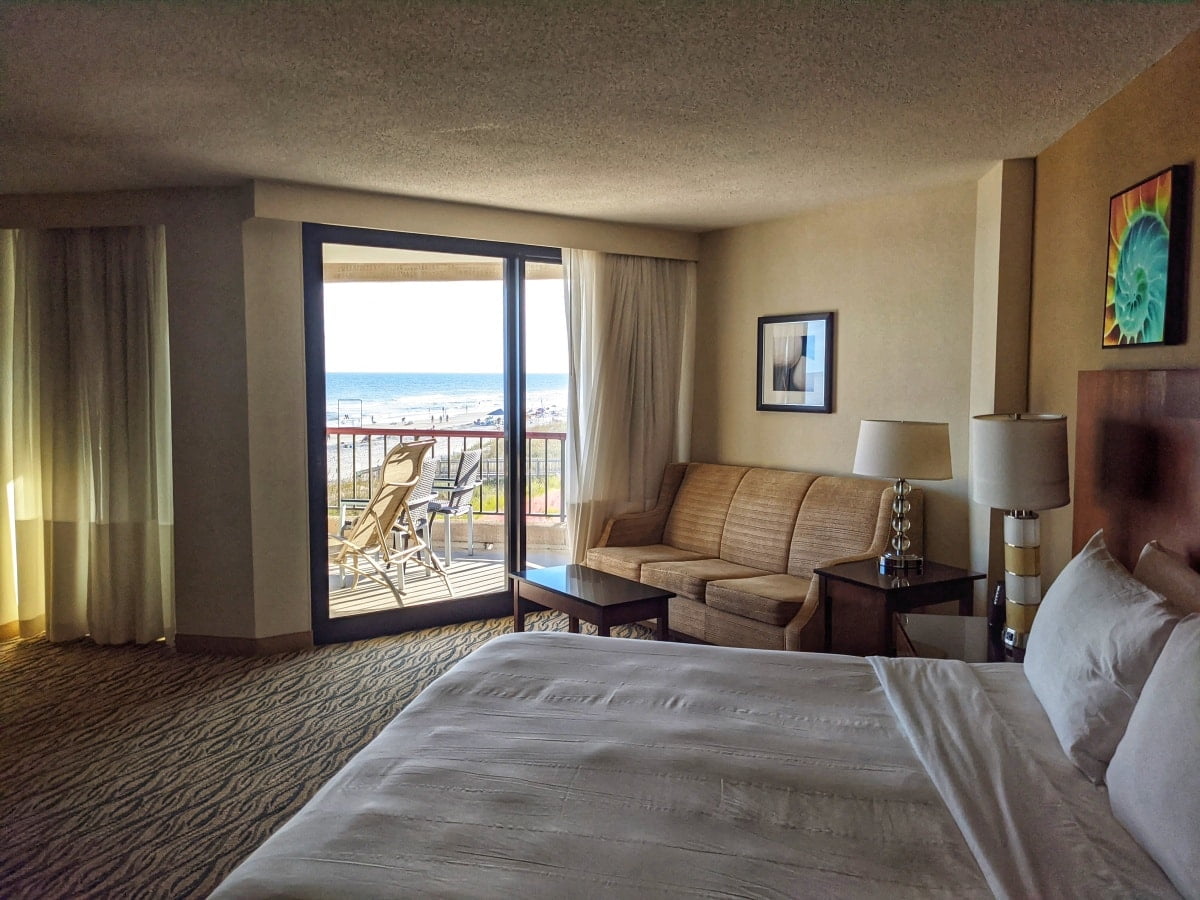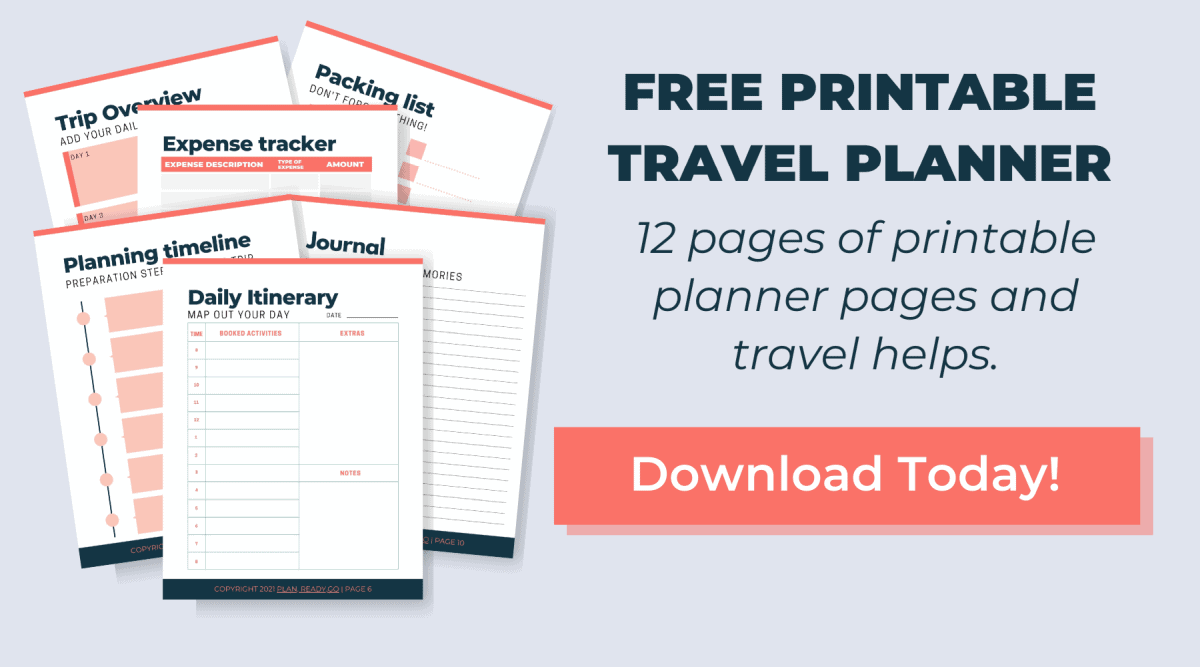Travel Tips for Beginners: Essential Advice for Your First Trip
If you’re on the hunt for practical travel tips for beginners, you’re in the right place. This article is packed with essential advice to help you prepare and enjoy your first travel adventures. I’ll walk you through the basics to help you make sure you’re ready for a great trip.
Key takeaways

This post includes affiliate links. If you make a purchase through one of these links, I may earn a small commission at no additional cost to you. As an Amazon Associate, I earn from qualifying purchases. See disclaimer.
Research your destination
Before you set foot outside your door, it’s important to research your chosen travel destination thoroughly.
- Familiarize yourself with the area through maps and travel guides. Understanding the layout of your destination can help you plan an efficient itinerary and good travel routes.
- Make a bucket list of sights and experiences you don’t want to miss. Prioritize them according to your interests, so that you can create the best travel itinerary for you.
- Look up safety information, local laws, and health advisories so you’re prepared.
- Check the weather forecasts to pack well for your trip.
Plan your perfect trip with this free printable travel planner.
Take suggestions from others with a grain of salt
When planning your trip, you’ll likely be bombarded with advice and suggestions from others. Listen, but filter their ideas through your own judgment. Everyone has their preferences, and what works for one person might not be best for another.
- Weigh the reliability of the person giving you advice. Friends who know you well may offer insights that align with your interests, while online reviews from strangers are often skewed by extreme experiences. Hey, I’ve seen people warn others away from traveling to Paris, calling it a “dump.”
- Don’t rely on a single piece of advice. Look for patterns in what you hear and read.
- Follow your interests and don’t change your plans just because someone suggests something else. Your travel is a personal experience; only you know what you’re hoping to get out of it.
Read more about the bad travel advice you can ignore.

Look for deals on flights
When looking to book your trip, scoring a deal on flights can make all the difference to your travel budget. Start by choosing flexible travel dates, as prices can significantly drop if you’re open to flying a day earlier or later.
- Websites like Google Flights are excellent resources for quickly comparing airfares across multiple airlines.
- Be strategic about when you book. Be open to flying midweek for a good chance to find the best fares.
- Keep an eye on flight prices for a while before booking, or set up alerts on apps like Google Flights, which notify you of price drops.
If flights don’t fit your schedule or budget, a road trip could be a good alternative.
PRO TIP: If you have flexible travel dates you need to check out Going (formerly Scott’s Cheap Flights). You get amazing flight deals sent straight to your inbox with instructions on how to book directly with the airlines. Check out Going here. Going is my favorite way to find great travel deals.
Consider traveling outside peak season
When you’re planning your getaway, consider the benefits of traveling during the off-season. Traveling off-peak means you’ll often find better deals on flights and accommodations since the demand is lower.
By choosing less busy times, you’ll likely enjoy popular attractions, with more space and fewer lines, which can mean a more relaxing vacation. But keep in mind that some attractions could have closures or shorter hours during low-travel seasons which you’ll want to make sure you’re aware of.
The off-season varies by destination. For some places, this could mean a trade-off with weather conditions. However, experiencing a destination in a different season can be a unique adventure in itself.

Plan your budget carefully
Creating a travel budget is a crucial step in the trip-planning process. Start by outlining all anticipated expenses such as flights, accommodation, food, local transportation, activities, and a little extra for unexpected costs.
I like to set a daily spending limit for food, souvenirs, and incidentals to help me keep my budget on track as I travel. To manage your travel budget:
- Start setting money aside well before your trip to make sure you have enough for the kind of trip you want to have.
- Track spending as you go. You can use the Plan, Ready, Go trip budget spreadsheet or even just paper and a pencil. Keep receipts, especially if you’re using credit cards for those expenses. Don’t rely on keeping tabs in your head. Things can add up quickly if you’re not careful.
For a complete discussion of this topic, see my article all about how to set your travel budget.
Do not go into debt to travel
I recommend creating a travel savings account to gradually build funds for your upcoming trip. I know many travel influencers promote a “don’t think, just travel” mentality, but is it wise?
To afford more travel you can look for ways to reduce your travel expenses where possible:
- Look for free activities at your destination.
- Travel during the off-season for better deals.
- Look for accommodations with a free breakfast or that include a kitchen so you can fix your meals instead of eating out at pricey restaurants.

Give your itinerary space
When you’re excited about your trip, it’s tempting to pack your itinerary to the max. However, a jam-packed schedule can quickly become overwhelming and leave you needing a vacation from your vacation!
Try to prioritize what you want to see and do; this way, you’ll be sure to strike a good balance between adventure and relaxation. It’s important to be realistic about how much you can fit into each day. Consider things like travel time between attractions, time for meals, and how much time you’ll need to rest and recharge for the next day.
Here’s a simple way to structure your itinerary:
- Morning: Choose one main activity or sight
- Afternoon: Add a secondary main activity or some flexible time to explore whatever strikes you at the moment
- Evening: Keep it open for relaxation or more impromptu plans
Using a simple template, such as the Plan, Ready, Go travel itinerary spreadsheet, will help you easily organize daily activities and keep track of important reservations, like hotels and rental cars.
Read more about how to plan your travel itinerary.
Alert your credit card company or bank if necessary
When you’re out exploring, the last thing you want is a financial hiccup. Make sure to notify your bank and credit card company of your travel plans. This heads-up can help prevent your cards from being declined due to unusual activity.
Most institutions now let you set travel notifications easily through their online banking platform or mobile app. This saves you the hassle of waiting on the phone.
Also, take the time to check on which cards come with foreign transaction fees so that you can plan for that expense or avoid them altogether. Read more about the hidden costs of traveling you need to plan for or avoid.
Carry a little cash, but not a lot
When you’re traveling, having some cash with you is a good idea. You’ll find situations where cards are not accepted or perhaps the technology fails. Keeping a modest amount of cash on hand can save you from these small emergencies.
However, carrying a lot of cash can be risky.
- Split your cash and store it in different places—some in your wallet, some in a hidden compartment in your bag, etc.
- Only carry as much as you might need for the day, keeping the rest secure in your accommodation’s safe.
- Some people swear by money belts. I hate how they feel under my clothes, so I prefer not to travel with one.

Charge all devices fully
Take the time to charge all your electronic devices completely. This includes your laptop, smartphone, tablet, and especially your battery pack. A fully charged battery pack is a travel essential for recharging your equipment when power outlets are scarce.
Having fully charged devices is important not only for entertainment but also for safety, ensuring you can connect and communicate when necessary.
Download music, podcasts, etc. before you leave
Long travel times and boarding area waits can become more enjoyable if you have a variety of entertainment options ready. Download your favorite music, podcasts, and audiobooks in advance. This can be especially useful if you find yourself in areas with spotty or no internet connection.
You’ll find it much easier to survive a long flight or a long stretch during your road trip if you have some things to occupy you.
Have backup plans in place
When planning a trip, be flexible. Unexpected events, such as flight cancellations, can disrupt even the most detailed itineraries. I speak from experience. Making contingency plans can save you not just time, but also reduce your stress levels.
Here are a few tips:
- Consider having a list of alternative flights or accommodations. It’s far easier to rebook if you already know your options.
- Keep your reservation confirmation numbers handy so you can refer to them quickly if you need to call your hotel, rental car company, airline, etc.
- Keep essentials in your carry-on. If you need to switch flights quickly, having important items with you will make transitions smoother. Or better yet, try traveling carry-on only so that you always have all your things with you for an unexpected overnight hotel stay.
- Use technology to your advantage. Apps and alerts can keep you updated on your travel status immediately.
Share your itinerary with at least one other person
Having a well-thought-out itinerary is a key component of your travel planning, but it’s equally important to share that plan with someone you trust. Why? Sharing your itinerary ensures that someone knows your whereabouts at all times. This can be particularly useful in case of emergencies or unexpected changes in your travel plans.
Pack light
My top recommendation for new travelers when it comes to packing is this: pack light. Stick to the essentials and resist the urge to overpack.
I know this can be challenging especially when it comes to clothing; it’s tempting to pack for every scenario. Instead, focus on versatile clothing items and rely on layers to adapt to changes in weather.
Packing well and light is a skill that you will develop over time as you travel more. Pretty soon you’ll be able to pack quickly for any trip you take.
Use an anti-theft purse
When traveling, your purse is an important companion, so opting for an anti-theft travel purse can enhance your security. These purses are typically made with durable, water-resistant materials and feature lockable zippers to deter pickpockets. The straps may be reinforced with a metal wire, making them slash-proof. Also, look for a purse with RFID-blocking pockets to protect yourself from electronic theft.
When selecting your anti-theft purse, balance security with practicality. Make sure it’s comfortable to wear and fits your daily essentials. A travel purse with enough capacity can serve as a personal item on your flight, eliminating the need for a larger bag.

Get enough rest each day
A regular sleep schedule might be challenging while on the move, but it’s important to get the rest you need so you don’t experience excessive fatigue as you travel. Listen to your body’s cues. If you feel fatigued during the day, a short 20- or 30-minute nap can be just the boost you need without interfering with your ability to get to sleep at night.
Another great tip is to set a bedtime routine that signals your body to relax. This could include a shower, dimming the lights, writing in your travel journal, or a little reading. If you find that you have trouble getting to sleep when you travel, think about cutting off screen time about 60 minutes before you want to get to bed.
Apart from sleep, making sure you get the downtime you need can help reduce travel anxiety.

Don’t let others ‘itinerary shame’ you
Everyone has their take on what makes the perfect trip, but remember, this adventure is yours. If your ideal day includes a leisurely café visit rather than a tour of ten historical sites, that’s perfectly okay.
It might be tempting to compare plans with veteran travelers or friends, but travel can be intensely personal. If you love nature more than museums, then that’s how you should spend your time.
Trust in your own decisions and build your itinerary with confidence. The beauty of travel is discovering what brings you joy, not what is expected from those outside yourself. If you like your plans, that’s all that matters.
Be flexible
Maintaining flexibility can greatly enhance your travel experience. Unexpected events will happen; having an attitude accepting potential changes to your plans will allow you to handle surprises with much less stress and upset.
For example, flight delays are common, so always have a backup plan and don’t let changes derail your adventure. Make necessary adjustments and then keep going.
Plan well but allow for spontaneous activities or detours. You don’t have to take the detours, but sometimes the most memorable experiences come from unplanned events. You might discover a hidden gem that isn’t in your guidebook simply because you decided to explore a side street or take a different trail.
Final thoughts on beginner travel tips
Starting your first trip can be exciting and a bit overwhelming, but with some research, careful planning, and a good budget, you’re on the right track. Remember to stay flexible and open to new experiences, as they can lead to the best travel memories. Your trip is your own, so make it what you want. Safe travels!
More articles to help you plan your trip
- Five steps to planning a trip (especially for beginners)
- Essential travel planning resources
- How to plan your trip budget
- Complete guide to planning a travel itinerary
- The art of choosing your next travel destination
- How to decide where to stay on your next trip
- How to pack quickly for your next trip
- Travel essentials for women
- How to stop overpacking
- Save money on flights every time you travel
- Essential tips for flying alone for the first time
- Tips for organizing your hotel room and making it feel like home
Pin this post!

